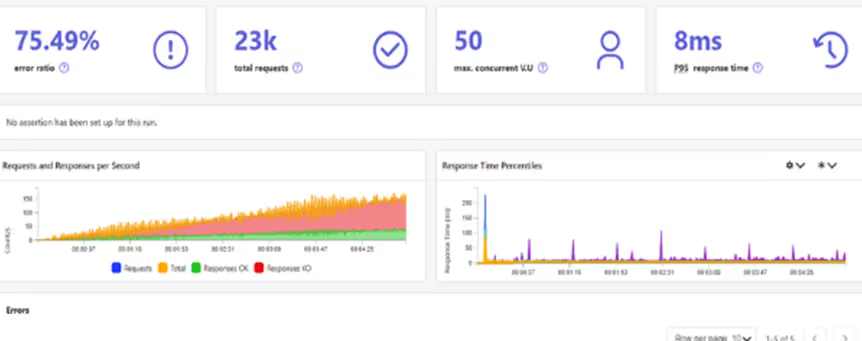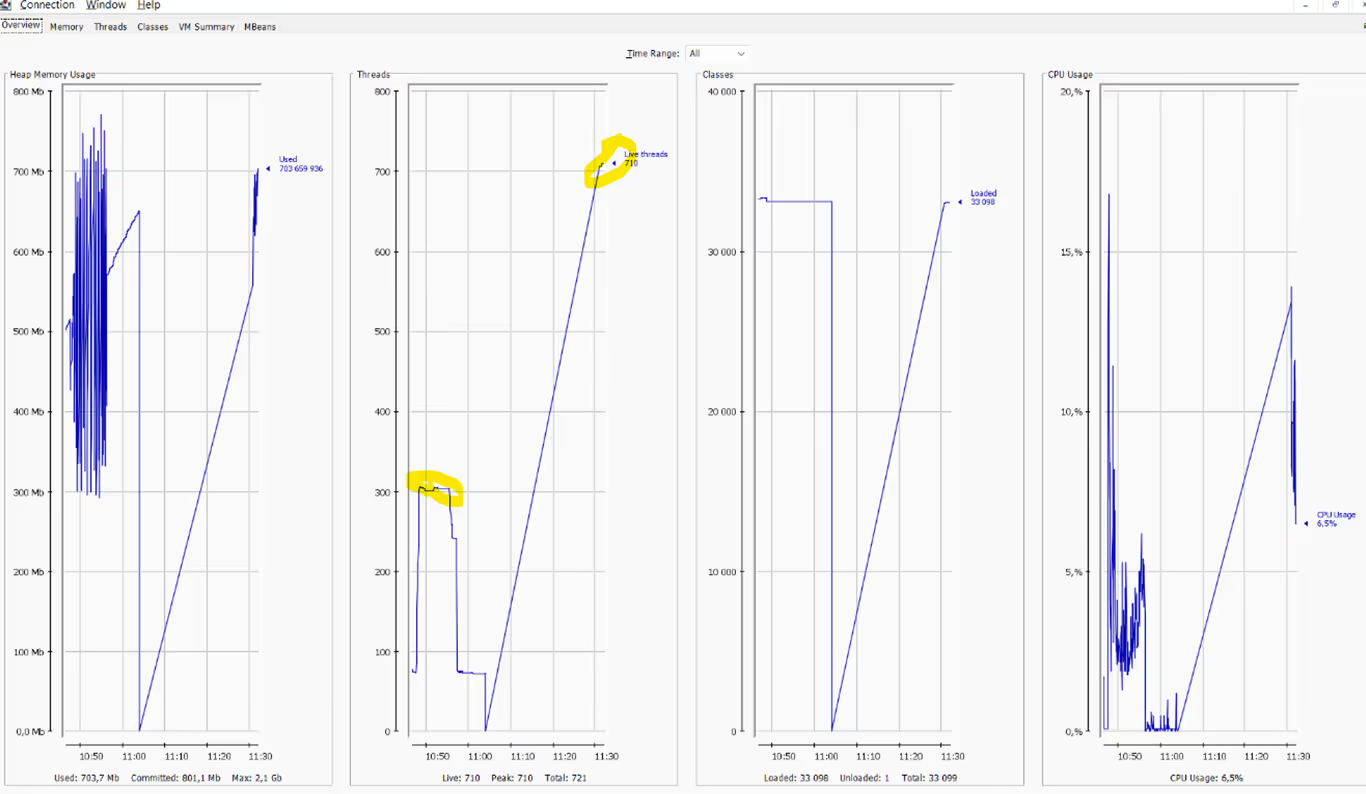
Software
How Korem enhanced performance across multiple systems
About the company
Since 1993, Korem has been creating long‑term value for its clients, employees and partners through innovation and geospatial expertise. Major North American companies like AT&T, Shell, Bell, and Desjardins rely on Korem every day to make informed decisions and enhance their efficiency.
Through its unique one-stop-shop experience, Korem is driving the adoption of geospatial technology and reducing risk. Its talented and multidisciplinary team of 100 experts shares unique business perspectives and neutral recommendations that help map out a promising future for its clients.
As a value‑added reseller, Korem offers the most comprehensive and diverse portfolio of geospatial solutions, including our strategic partners Precisely, HERE Technologies, Environics Analytics, CARTO and Alteryx.

Increased
concurrent user capacity
8ms
P95 response time
Korem’s challenges and pain points
Microservice Optimization on Kubernetes
Korem’s growing microservices architecture on Kubernetes began showing signs of instability during traffic spikes. Performance tests revealed that Tomcat’s thread limits were causing frequent crashes at around 50 concurrent users. Ensuring the platform could scale effectively under increasing loads became a top priority.
Migrating a critical rendering engine
During the migration of their cartographic rendering engine, Korem needed to ensure that the cloud infrastructure could not only match but surpass the performance of their former on-premise solution. This application was central to providing cellular coverage visualization and needed to handle high traffic without sacrificing performance or reliability.
Caching system instability
Korem’s existing caching architecture struggled with stability, especially under continuous, high-volume requests. This impacted tile rendering speed and system reliability in production. To maintain a smooth user experience, Korem needed to evaluate multiple caching solutions capable of delivering consistent performance under heavy load.
How Gatling enterprise helped
Optimizing microservices on Kubernetes
Gatling’s load testing helped Korem simulate high levels of concurrent users to uncover critical bottlenecks in their microservice architecture. The tests revealed that Tomcat’s default thread limits were being exceeded under load, leading to crashes. Korem optimized the thread count, database connection pools, and instance sizing, which resulted in smooth performance with no crashes at higher user loads.
Migrating the cartographic rendering engine
To ensure that the migration would be seamless, Korem ran simulations that replicated typical user behavior, such as rendering map tiles, panning across maps, and performing address lookups. Gatling’s real-time insights allowed Korem to identify discrepancies in performance between the new and old infrastructures. Additionally, Gatling helped them resolve an issue related to port exhaustion on their load balancer, ensuring continuity of service during high-load situations.
Evaluating different caching systems
Korem used Gatling to test and compare three caching systems: NFS, PostgreSQL, and SeaweedFS. The simulations helped Korem measure write speeds for cache generation and read speeds for pre-generated tiles, confirming which solution provided the best stability and performance. By running Gatling tests on externally hosted infrastructure, Korem was able to verify that the new caching system would meet their long-term scalability needs.
Results
Eliminated microservice crashes and improved scalability
After optimizing thread limits, database configurations, and instance sizing, Korem successfully scaled its microservices architecture to handle higher user loads without crashes. Tomcat’s thread limit previously caused issues at around 50 concurrent users, but with adjustments identified by Gatling’s load testing, the system now handles significantly more traffic without interruptions, improving platform stability during peak periods.



After the adjustment: A smooth and stable performance, with fewer errors and no pod restarts, as the system could now handle more concurrent users.
Seamless cloud migration with sustained performance
Korem’s migration of their cartographic rendering engine to a cloud infrastructure was completed without performance loss. With Gatling’s insights, they ensured high-traffic events, like map rendering and coverage lookups, were managed effectively. By resolving load balancer port exhaustion issues, they maintained smooth performance under heavy loads.
Optimized caching system stability and speed
Through Gatling’s testing, Korem identified the best caching solution for improved performance. They ensured faster read/write speeds and long-term stability for map-based applications, resulting in better platform responsiveness and a smoother user experience.
Proactive issue detection and time savings
Gatling’s integration with Korem’s CI/CD pipeline allowed the team to identify performance issues early in the development process. This shift from reactive to proactive testing improved release quality, saved time on post-deployment fixes, and freed up the development team to focus on feature work, ensuring that performance is consistently maintained.
Improved deployment confidence and reduced downtime risks
Automated load testing before deployment has greatly improved Korem’s confidence in their updates, reducing risks of performance issues and downtime during critical business periods. This streamlined testing process has accelerated deployment times and reduced the need for manual testing efforts.
Main improvements transitioning to Gatling Enterprise
- Scalability: Gatling allowed Korem to scale beyond the limits of their previous tools, which struggled with higher traffic volumes.
- Real-Time Insights: Gatling provided actionable metrics that helped pinpoint performance bottlenecks quickly, ensuring rapid resolution of issues.
- Efficient Resource Use: Gatling’s resource efficiency enabled Korem to run comprehensive load tests with lower infrastructure costs compared to other testing tools.
- CI/CD Integration: Gatling’s deep integration with Korem’s CI/CD pipeline allowed for continuous, automated testing with every code commit—something their previous tools lacked.
What Korem Says:
“Gatling Enterprise has been a game changer for our performance testing. We were able to simulate real-world traffic loads, identify bottlenecks in our system, and optimize everything from microservices to caching architecture. The tool’s ease of integration into our CI/CD pipeline ensures that every release is tested for performance, giving us full confidence before going to production.”
Jimmy Duchesne, Products and Presales Director
What’s Next
Moving forward, Korem plans to further embed load testing into their development workflow. This includes implementing performance thresholds for each new pull request to detect potential performance issues even earlier.
By increasing the frequency of their automated load tests, Korem aims to maintain optimal platform performance as their user base grows. With Gatling Enterprise as a core component of their strategy, Korem is well-positioned to scale their infrastructure and continue delivering exceptional user experiences.
Your all-in-one load testing platform
Start building a performance strategy that scales with your business.
Need technical references and tutorials?
Minimal features, for local use only

